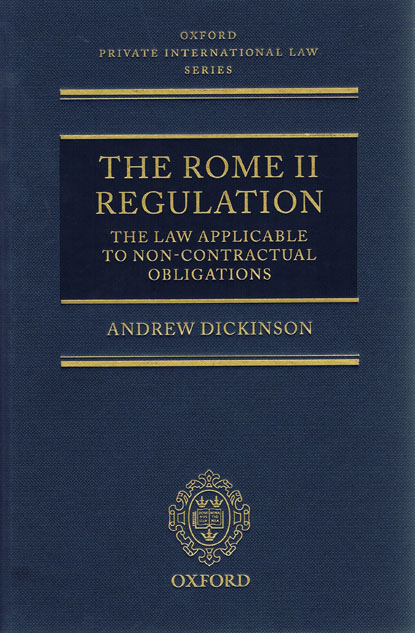
This pack includes The Rome II Regulation and a brand new Updating Supplement which brings the Main Work up to date and incorporates substantive developments since publication of the book in December 2008.
The European Commission's 2003 proposal for a Regulation on the law applicable to non-contractual obligations (the so-called Rome II Regulation) provoked widespread debate.
For some, Rome II was an essential part of the area of freedom, security and justice contemplated by the Treaty of Amsterdam. For others, it was neither necessary nor desirable.
Despite opposition, the Regulation was approved by the Council and European Parliament in 2007 and will come into force on 11th January 2009. Practising lawyers will swiftly need to come to terms with the radical changes which it makes to rules of applicable law for torts and other non-contractual obligations (including, for example, claims based on unjust enrichment or equitable wrongdoing).
This work seeks to provide a user-friendly article-by-article commentary to assist in that task. The book also considers related issues, such as the vires of the Rome II Regulation and its relationship to other EC instruments creating or affecting rules of private international law.
The Main Work, The Rome II Regulation: The Law Applicable to Non-Contractual Obligations has become a major reference work to practitioners as it provides the first user-friendly article-by-article commentary to the Regulation. It considers related issues, such as the vires of the Rome II Regulation and its relationship to other EC instruments creating or affecting rules of private international law.
The brand new updating supplement updates the Main Work and draws attention to legislation implementing the Regulation in the United Kingdom, incorporates recent ECJ cases concerning other EC private international law instruments and new decisions of the English courts concerning the pre-Regulation rules of applicable law, and to recent books and journal articles providing further colour to the picture surrounding the Regulation since its adoption in January 2009.
It maintains the currency of the Main Work and is an essential purchase for commercial law practitioners, academics and students with a special interest in cross-border issues.